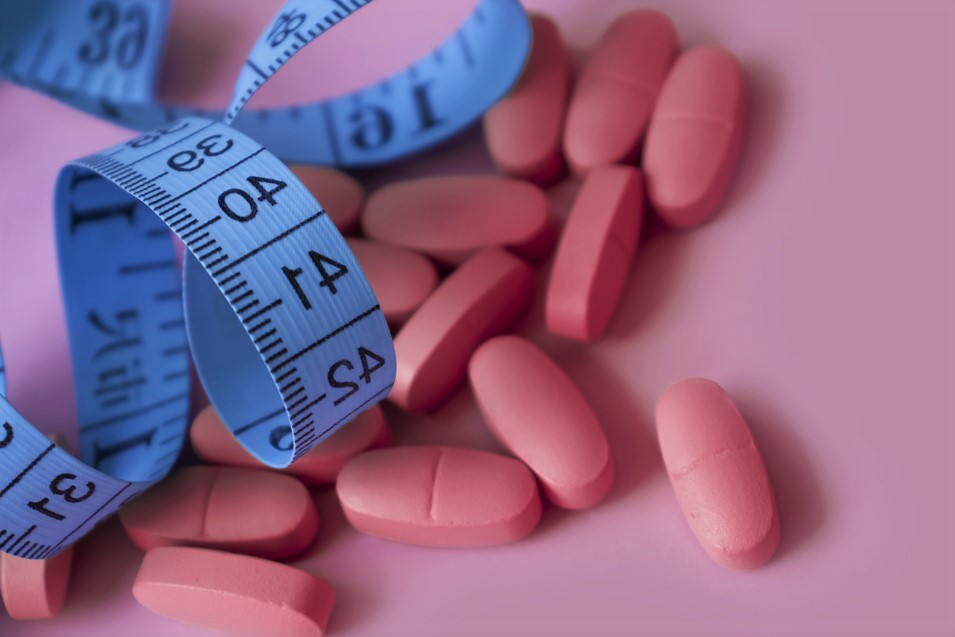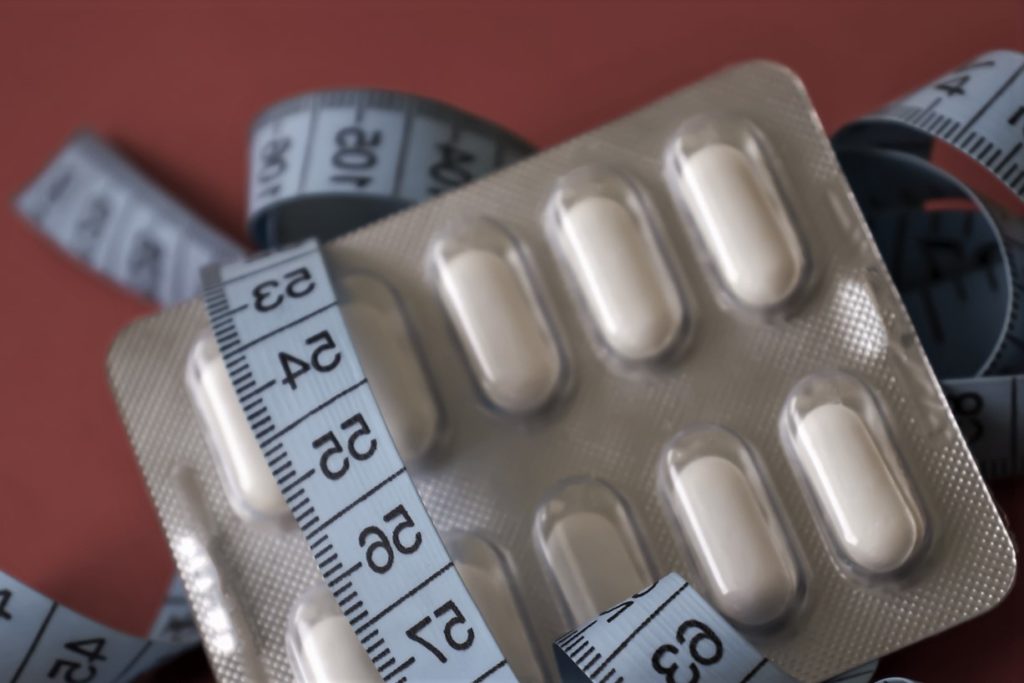Diet Pills: Addiction, Side Effects, Overdose & Treatment
Diet pills have been in use for a long time, and their effects have been felt by many people. However, their use has been associated with some risks, which include addiction, side effects, and overdose.
In this post, we shall be discussing addiction to diet pills, side effects, and overdose. We shall also be looking at treatment options for those who may be addicted to diet pills.
What Are Diet Pills?
Diet pills are either over-the-counter or prescription drugs that help individuals reduce some pounds of weight. This can be done through the suppression of appetite while enhancing vigor to do work.
While there are diet pills that are prescribed by doctors, there are others that can be gotten over the counter. These mostly contain herbal products, and they might not have been tested for safety or efficiency.
What Do Diet Pills Look Like?
Diet pills come in different shapes and sizes, depending on the type of pill and the manufacturer. The majority of over-the-counter and prescription diet pills are available in tablet or capsule shapes. The common pill imprints of these drugs include the brand name and milligram contents. Likewise, other brands come in distinct color combinations.
Diet pills typically come in bottles of 30 or 60 capsules. When shopping for diet pills, be sure to read the label carefully to make sure you are getting the right product for your needs.
In general, there are five types of diet pills on the market: herbal supplements, laxatives, lipase inhibitors, stimulants, and anorexants.
What Are Diet Pills Used For?
Each type has its specific function and characteristics as an appetite suppressor. Herbal appetite supplements come in various forms in the market such as pills, tablets, tea, or powder form. These dietary supplements aim to enhance one’s digestion of food.
Laxatives and stimulants are the ones commonly abused by consumers. Laxatives are mainly used to ease bowel movement but several people use them to flush out wastes inside the stomach.
Meanwhile, stimulants, whether over-the-counter or prescription types are typically misused as appetite suppressants. These drugs are commonly used by people going to the gym to increase one’s energy to work out while taking less food.
The two types left are anorexiants and lipase inhibitors. The former functions similarly to stimulants where it suppresses food intake while increasing energy to do work. The latter are enzymes that prohibit the absorption of fat in the body.
These medications have several brand and street names depending on which area it is present or sold. Some of the FDA-Approved weight-loss medicines include Alli, Xenical, Belviq, Qsymia, Contrave, and Saxenda.
Other herbal supplements for weight loss available on the market include Bee pollen, Green tea, Forskolin, Raspberry Ketones, Conjugated linoleic acid, and more. The ingredients of these supplements are naturally derived and have undergone very little processing.
How Do Diet Pills Work?
Diet pills work in many ways, depending on their ingredients and functions. The most common mechanism is by suppressing appetite to reduce calorie intake throughout the day. This can be done by stimulating certain chemicals in the brain that control hunger signals.
Other diet pills work by preventing the absorption of fat in the body. This is achieved by inhibiting the action of enzymes that are responsible for breaking down fat molecules.
Still, others work by increasing the body’s metabolism to burn more calories throughout the day. This can be done through the stimulation of certain hormones or by providing extra energy to the cells.
How Long Before You Can Feel the Effects of Diet Pills?
Diet pills are a popular weight-loss aid, but how quickly do they start to work? The answer is different depending on the type of pill. For instance, some contain stimulants that can provide an energy boost within minutes. However, these pills may also cause side effects like jitteriness and increased heart rate.
Other diet pills take longer to kick in, but they may be more effective at helping you lose weight in the long run. For example, appetite suppressants can take a few days to start working, but they can help you feel fuller for longer and avoid overeating.
How Long Do Diet Pills Stay In Your System?
There is no one-size-fits-all answer to this question, as the amount of time diet pills stay in your system depends on the type of pill you are taking.
There are different types of diet pills, each with its active ingredient and metabolism. As a result, the amount of time it takes for diet pills to leave your system will vary depending on the specific pill you are taking.
That said, most diet pills will remain in your system for several hours, days, or even weeks after you take them.
What are the Short and Long-term Side Effects of Diet Pills?
Hunger suppressants are the most common type of diet pill, and they work by decreasing the amount of food that you eat. While they may help you lose weight in the short term, they can also cause problems like hunger pangs, cravings for unhealthy foods, and mood swings.
The short-term side effects of diet pills are usually mild and include things like headaches, nausea, and constipation. The long-term side effects of diet pills can be more serious and include things like increased risk of heart attack and stroke, increased blood pressure, and addiction. They can also be addictive and lead to weight gain once you stop taking them.
Are Diet Pills Addictive?
Yes, diet pills can be addictive. This is particularly true if you are using drugs like amphetamines or illicit drugs to lose weight. These types of drugs can cause psychological dependence, and they can also be addictive physically.
When you’re addicted to diet pills, you may find that you’re not able to stop taking them even if you want to. You may also need more and more of the pills to get the same effect. And if you stop taking the pills, you may experience withdrawal symptoms such as nausea, headache, dizziness, or irritability.
What Are the Withdrawal Symptoms?
Withdrawal symptoms can vary depending on the substance you’re addicted to and how long you’ve been taking it. However, common withdrawal symptoms include fatigue, problems concentrating, muscle aches and pains, and increased appetites.
Withdrawal can be a difficult process, but there are many resources available to help you through it. It is recommended to detox under the care of a medical professional, as they can help manage the symptoms and make sure you’re safe.
What Causes Diet Pill Overdose? Signs of an Overdose
There are a variety of reasons why someone might take too much of a diet pill. Maybe they’re trying to lose weight too quickly and are taking more than the recommended dose. Maybe they misunderstand the instructions and take too many pills at once. Whatever the reason, taking too much of a diet pill can be extremely dangerous and even life-threatening.
The signs of an overdose vary depending on the particular diet pill, but some common symptoms include tremors, convulsions, and vomiting. If you or someone you know has taken too many diet pills, it’s important to seek medical help immediately. This is a serious situation and shouldn’t be treated lightly.
What Should You Do If Someone Is Overdosing?
Overdosing on diet pills can be a serious medical emergency. If you think someone has overdosed on diet pills, it’s important to seek medical help immediately. Overdosing on diet pills can also lead to more serious problems like seizures and heart attacks.
If you’re not sure whether someone has overdosed on diet pills or not, it’s always better to err on the side of caution and seek medical help. Diet pill overdoses are treated in the same way as other drug overdoses, so getting professional help is vital.
How Do You Treat Diet Pill Addiction? Detox & Treatment
Diet pill addiction is a real thing, and it should be treated just like any other addiction. This means that you need to see an addiction specialist, preferably one who specializes in treating drug addictions.
The most important thing is to get the addicted person into a safe and supportive environment where they can detox and get the help they need. This can be a residential treatment center, or it may be something less intensive like an outpatient program.
Final Thoughts: Addressing Diet Pill Abuse and Addiction
Diet pill abuse and addiction are serious problems. If you or someone you know is abusing diet pills, it’s important to seek professional help immediately. There are many resources available to help you through this difficult time.
















